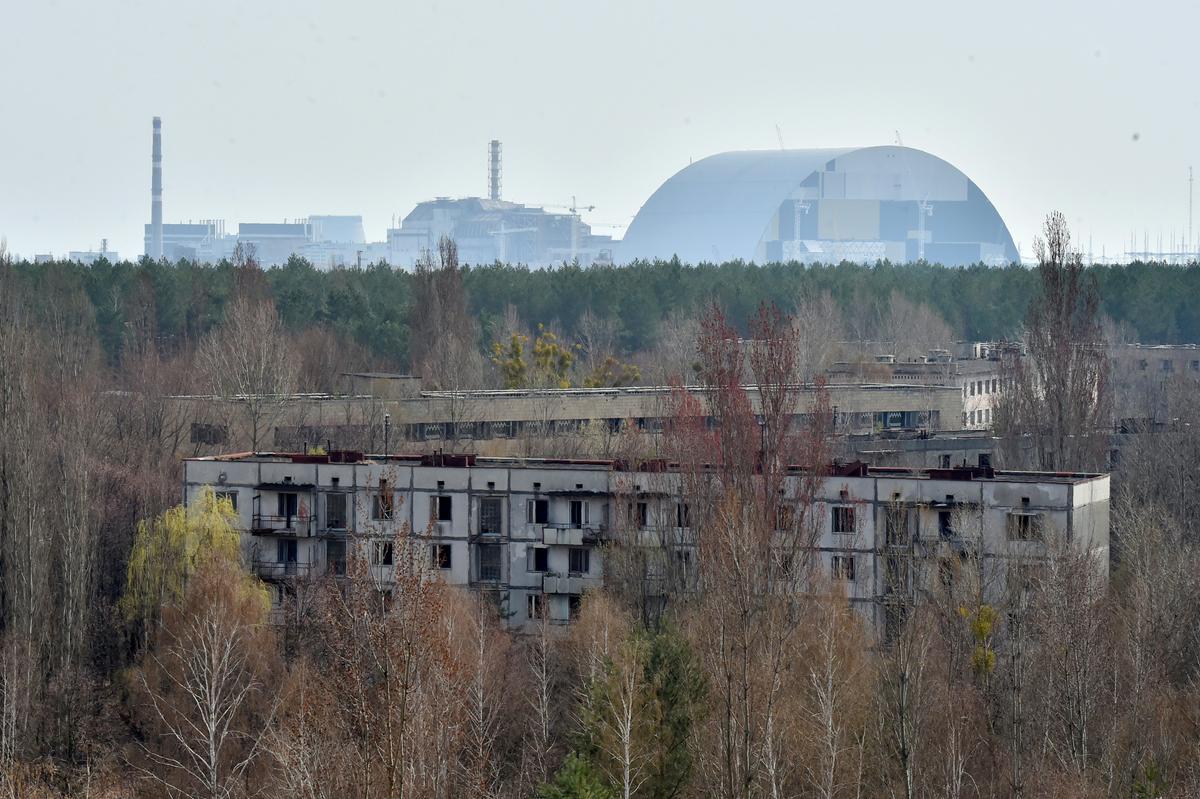The notorious Chernobyl nuclear power plant that had a meltdown in 1986 has been hit in the recent global cyberattack, forcing operators to switch over to manual radiation monitoring.
“Due to the cyberattack, the website of the Chernobyl nuclear plant is not working,” the agency in control of Chernobyl exclusion zone said in a statement, AFP reported. “Due to the temporary shutdown of the Windows system, the radiation monitoring of the industrial area is being done manually,” the agency said.
“That means that our measurers go out with hand-held meters on the Chernobyl plant like it was decades ago,” a spokeswoman for the agency, Olena Kovalchuk, told the AFP news agency.

The picture shows a general view to Chernobyl Nuclear Power Plant from ghost city of Prypyat on April 8, 2016. SERGEI SUPINSKY/AFP/Getty Images





